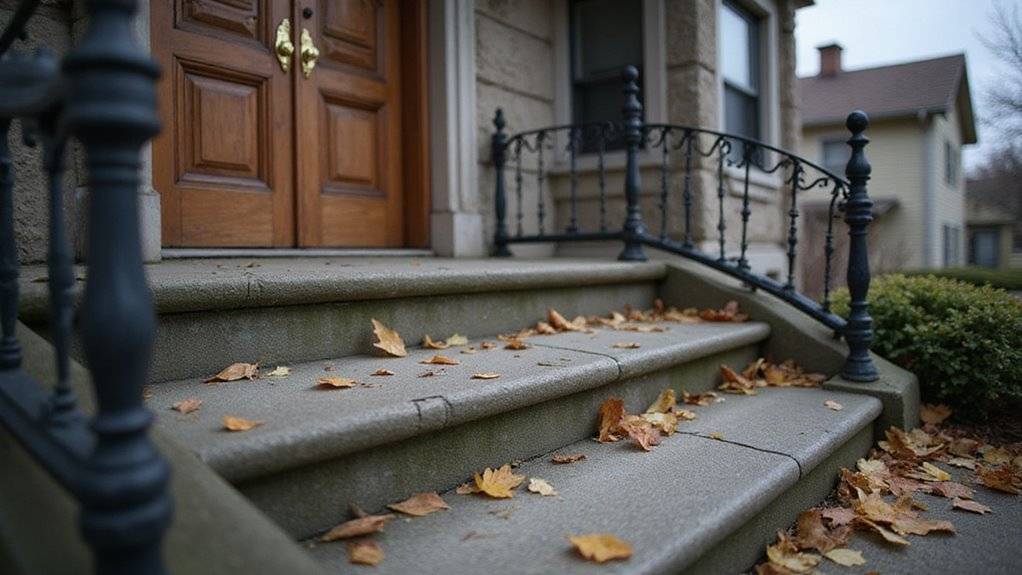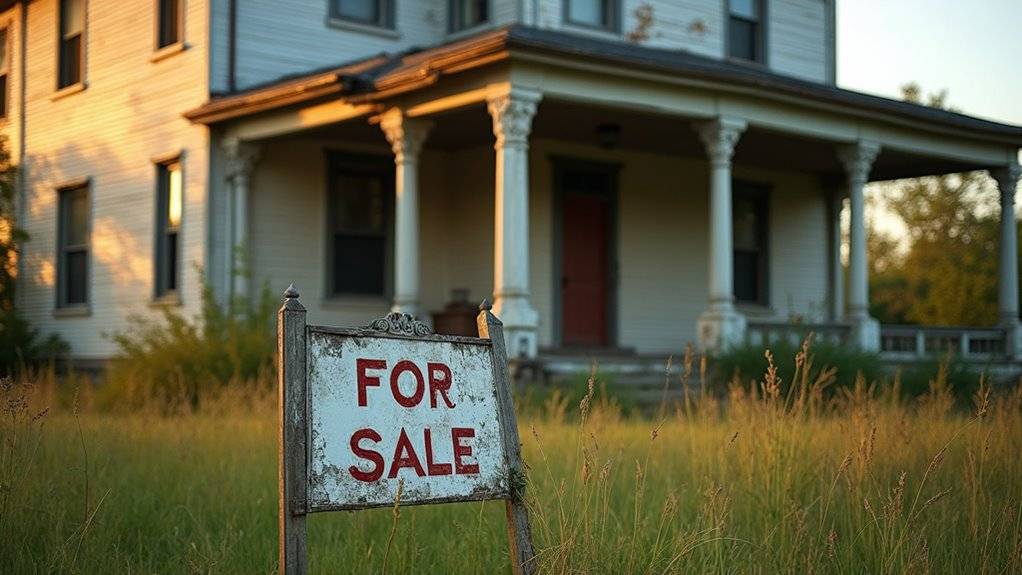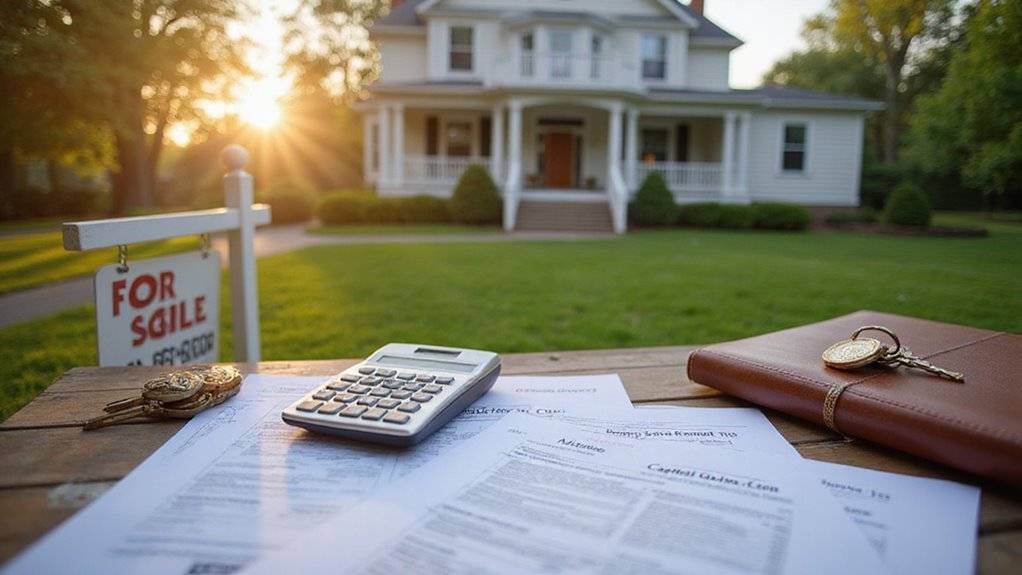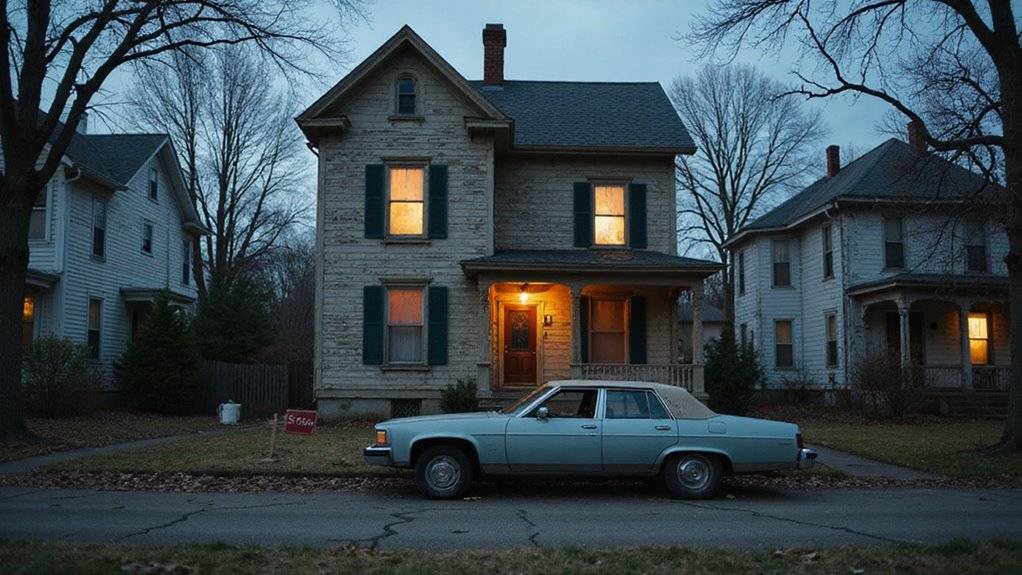Dealing with an inherited property brings a mix of emotional challenges and complex legal requirements. Many heirs feel overwhelmed by paperwork, probate proceedings, and multiple decision-making responsibilities. The stress intensifies when family members disagree about the property’s future or when financial obligations pile up. Thankfully, selling an inherited house follows a clear, structured process that simplifies these challenges.
Once you complete the probate process and secure proper documentation, selling an inherited house becomes straightforward. The timeline typically spans 6-12 months in Virginia, requiring either sole ownership or written consent from co-heirs. Understanding tax implications, especially capital gains, remains crucial for a successful sale.
This blog will explore every crucial aspect of selling your inherited property efficiently and profitably.
What is an Inherited House?

An inherited house is real property you’ve received after someone’s death, either through a will or Virginia’s intestate succession laws. You’ll gain legal ownership only after the Circuit Court completes probate and officially transfers title to you as heir or beneficiary. Your inheritance scenario determines your next steps—whether you’re the sole heir with clear authority to sell, or one of multiple co-heirs who must all agree before any transaction can proceed.
Definition and Legal Status
Legal ownership and transfer methods determine the status of inherited houses in Virginia. A valid will names specific beneficiaries who receive testate property through probate court. Without a will, intestate succession laws distribute assets to legal heirs based on family relationships. Properties can transfer through different methods to avoid probate complications.
Three additional transfer options exist: trust property with direct transfer benefits, joint tenancy with automatic survivor rights, and heir’s property requiring formal probate. The Circuit Court must validate and approve all inheritance transfers. Subsequently, beneficiaries receive full legal rights to the property.
Common Inheritance Scenarios
The most common inheritance scenarios involve parents, spouses, and siblings passing down property. A parent’s property typically transfers to children through a will or intestate succession laws. Spouses usually receive the full estate when their partner dies. Multiple siblings often become joint owners after both parents pass away.
These inheritance paths create different legal requirements. Clear property titles need proper documentation and heir agreements. Moreover, most heirs must work together to complete any property sales. Therefore, early communication between heirs helps prevent future disputes.
Can I Legally Sell an Inherited House?
You can legally sell an inherited house once the probate court appoints an executor and grants authority to transfer the property. You’ll need to complete the probate process, which typically takes 6–12 months in Virginia, before closing on any sale. If you’re inheriting with others, all co-heirs must agree to the sale, or you’ll need to file a partition action through the court.
Executor Authority Requirements
A court-appointed executor needs official documents from the Virginia Circuit Court to list inherited property. The minimum requirements include a qualification certificate and letters testamentary or letters of administration.
The court must authorize property sales if specified in the will terms. Written consent from beneficiaries proves their agreement to the sale. Additionally, executors must maintain clear title documentation.
These legal safeguards ensure proper property transfer and protect all parties involved. Without proper authority, property sales remain invalid under Virginia law.
Probate Process Completion
A complete probate process must happen before selling an inherited house in Virginia. The Circuit Court validates the will and settles debts within 6 to 12 months. An executor needs the death certificate, will papers, and property deed to start.
Moreover, the property receives a stepped-up tax basis at death, which can reduce inheritance taxes. The court provides legal permission to sell once probate ends.
As a result, proper documentation protects all heirs during the sale process. Clean title transfer ensures a smooth transaction for everyone involved.
Co-heir Agreement Considerations
Legal protection requires written documentation among property heirs. A notarized agreement with signatures from all heirs establishes clear ownership rights. Virginia law allows partition actions under Code § 8.01-81 when heirs cannot reach consensus.
Smart heirs pursue open dialogue before resorting to legal action. Early communication prevents expensive court battles and preserves family relationships. Moreover, buyout arrangements offer flexibility when some heirs prefer to retain the property.
Court-ordered property sales typically yield lower returns due to forced liquidation timing. Therefore, private agreements between heirs often lead to better financial outcomes.
What Documents Do I Need to Sell an Inherited House?
The key documents needed to sell an inherited house are: A death certificate, probate court letters, and the original will prove your legal right to sell. The property deed shows ownership history and chain of title. Tax records, mortgage statements, and lien documentation verify any claims against the property.
Furthermore, you must obtain title insurance and recent property surveys before listing. Most states also require disclosure forms about the home’s condition. Real estate agents and title companies often request additional paperwork based on local laws.
How to Sell an Inherited House?

You’ll need to navigate five essential steps to successfully sell your inherited house in Virginia. First, you must obtain clear title and complete the probate process, which typically takes 6–12 months. Once you’ve secured legal authority to sell, you can prepare the property, market it effectively, and move toward closing.
Obtaining Clear Title
Clear title proves you legally own an inherited house and can sell it. A clean ownership record must exist without any competing claims or debts.
You must obtain Letters Testamentary from the Circuit Court to establish legal authority. The court requires a filed death certificate and probate decree for property transfer. A title search confirms no outstanding liens or disputes exist.
Title insurance protects new buyers from future ownership challenges. Your real estate attorney can guide this process and ensure proper documentation. Many title companies offer specialized services for inherited properties.
Handling the Probate Process
Probate Must Be Completed Before Selling an Inherited House The probate process takes 6 to 12 months in Virginia before any inherited property can be sold. A Circuit Court will appoint an executor to manage the estate legally. The executor must obtain proper authorization to handle the sale.
Moreover, the process begins with filing a death certificate and will within the first two weeks. An executor receives appointment within 30 to 60 days. During this time, all estate debts need settlement.
In the final stages, the court grants sale approval between months 6 and 8. Once approved, the executor can transfer clear title to complete the transaction. This systematic approach ensures legal protection for all parties involved.
Preparing the Property for Sale
A well-prepared property attracts better offers and sells faster. Five key steps ensure maximum value for an inherited house.
Start by removing all personal items and scheduling an estate sale. Critical repairs must focus on major systems like roofing, HVAC, and plumbing issues. Professional deep cleaning removes years of accumulated dirt and grime.
Fresh landscaping and exterior paint create strong first impressions. Moreover, strategic staging lets potential buyers visualize their future in the space. These simple improvements can boost the final sale price significantly.
Most inherited properties need $5,000 to $15,000 in essential repairs before listing. Focus on safety and functionality rather than cosmetic upgrades.
Marketing the Inherited Property
A real estate agent and effective listing strategy will help market your inherited property successfully. Choose an agent with proven experience in estate sales and local market knowledge. Your agent should understand probate laws and inheritance regulations.
Professional photos and detailed property descriptions attract qualified buyers. Upfront disclosure about the estate sale status builds trust with potential buyers. Market value pricing based on recent comparable sales data helps attract offers within 30-60 days.
Moreover, investors make excellent prospects for inherited properties. They understand complex title situations and accept extended closing periods. Traditional buyers often prefer simpler transactions with standard timelines.
Closing the Sale
A successful property closing requires clear title transfer and proper documentation between all parties. Legal documents needed include a valid deed, current title search, and settlement statement. Both buyer and seller must sign final paperwork at the closing table. The title company or attorney will guide this process.
First, review all closing costs and required payments carefully. Then, prepare necessary funds via certified check or wire transfer. Finally, schedule the closing meeting when all parties can attend.
Your state may have specific laws about closing procedures and timing requirements. Connect with local real estate professionals to ensure compliance and avoid delays.
What Tax Implications Should I Consider?

When you sell an inherited house in Virginia, you’ll face federal capital gains tax on any profit above the property’s value at the date of death—not what the original owner paid. Fortunately, Virginia doesn’t impose state inheritance or estate taxes, and you’ll benefit from a step-up in basis that resets the property’s value to fair market value when you inherited it. This step-up often significantly reduces or eliminates your capital gains tax liability, making the sale more financially favorable.
Capital Gains Tax Considerations
Capital gains tax applies when you sell an inherited Virginia house, but proper planning can minimize taxes. The tax code provides significant relief through the step-up basis rule. Your tax basis becomes the property’s fair market value on the date of inheritance. You only pay taxes on gains above this stepped-up value.
A professional appraisal documents your new tax basis. Moreover, Virginia residents face no additional state inheritance or estate taxes. To ensure compliance, work with a qualified tax advisor before selling inherited property.
Inheritance Tax Issues
Virginia has no inheritance or estate tax. Federal estate tax applies only to estates worth more than $13.61 million in 2024. This creates a tax-friendly environment for most inheritors.
Capital gains tax becomes relevant when selling an inherited property. The property receives a step-up in basis to its fair market value at the time of inheritance. Federal capital gains tax applies only to appreciation that occurs after the inheritance date.
A proper understanding of these tax rules saves money and prevents surprises. Estate planning strategies help preserve wealth for future generations. Furthermore, consulting with tax professionals ensures compliance with current regulations.
Step-Up Basis Benefit
Step-up basis allows heirs to minimize capital gains taxes on inherited assets. Assets receive a new tax basis equal to their fair market value at the date of death.
The tax code eliminates capital gains tax on appreciation that occurred during the original owner’s lifetime. Heirs only pay taxes on gains above the stepped-up value when they sell. This benefit provides significant tax savings for inherited property, stocks, and other appreciated assets.
A clear example shows the advantage: A house bought for $50,000 is worth $500,000 at inheritance. The heir’s new basis becomes $500,000, erasing tax liability on the $450,000 appreciation.
What Are My Options for Selling an Inherited House?

You have several paths to sell your inherited Virginia property, each with distinct advantages depending on your timeline and situation. A traditional real estate listing maximizes price but requires time and property preparation, while cash buyers offer speed and convenience with as-is sales. You can also choose a for-sale-by-owner approach to save on commissions or pursue an auction for a quick, competitive sale.
Traditional Real Estate Listing
A licensed real estate agent provides the most reliable path to sell inherited property in Virginia. Professional agents market your home to qualified buyers and manage complex probate paperwork.
The standard sale process takes 30 to 90 days from listing to closing. Agents conduct market analysis to set competitive prices and negotiate the best deals. Their expertise ensures legal compliance throughout the transaction.
All heirs must agree on listing details and final offers before proceeding. Virginia inheritance laws require specific documentation and title clearance for inherited property sales. This traditional approach maximizes your sale price and reduces legal risks.
Cash Home Buyers
Cash home buyers purchase houses directly with cash offers. These investors close deals within 7-14 days and buy properties in any condition. No repairs, agent fees, or staging costs are required to complete the sale.
A fast cash sale helps resolve inherited property situations quickly. The process eliminates traditional listing hassles and financing delays. This solution works best for properties needing major repairs.
In exchange for speed and convenience, expect offers below market value. However, this trade-off benefits sellers who need quick resolution or have distressed properties. Moreover, cash buyers handle all paperwork and closing costs.
For Sale By Owner Approach
A For Sale By Owner (FSBO) approach lets homeowners sell their property without a real estate agent. This direct method saves thousands in commission fees but requires careful planning and work.
Set your home’s price based on recent comparable sales data within a one-mile radius. Create listings on popular real estate websites and install professional yard signs. The right marketing mix attracts qualified buyers.
Legal requirements demand proper disclosure forms and accurate title documentation. Your probate attorney will guide compliance with state laws. Consider hiring a real estate attorney to review final contracts.
Auction Sales
Auctions offer a legal way to sell property when heirs disagree about inheritance terms. Courts in Virginia can mandate property auctions through partition actions under Code § 64.2. A court-appointed commissioner manages the entire sale process.
Auction fees typically range from 10-15% of the final sale price. These sales move faster than traditional real estate transactions. The probate court supervises each step to protect all parties. Additionally, buyers receive clear title transfers through this process.
Furthermore, auctions eliminate the need for lengthy negotiations between conflicting heirs. The fair market value ensures equal distribution of proceeds among beneficiaries.
How Can I Sell an Inherited House Fast?
To sell an inherited house fast, focus on cash buyers and streamlined processes. Cash buyers purchase properties quickly without financing delays or repairs. Most inherited homes sell within 2-4 weeks through direct cash offers.
Smart preparation speeds up the timeline effectively. Get legal documents and heir approvals ready before listing. Partner with probate attorneys who understand fast sales. A well-prepared inheritance sale moves 75% faster than standard home sales.
Professional cash buyers make the process simple and stress-free. They handle paperwork, closing costs, and required repairs. As a result, you receive payment quickly without costly delays or complications.
Conclusion
When you inherit a house, the process of selling it doesn’t need to be overwhelming. We understand the unique challenges that come with inherited properties. At Align Real Estate Solutions, we specialize in helping Virginia homeowners convert inherited properties into quick cash.
Our team serves multiple cities across Virginia, offering straightforward solutions for inherited property sales. We handle all the paperwork and legal requirements associated with inherited real estate. Our process eliminates the need for repairs, cleaning, or staging the property.
If you’re ready to sell your inherited house, we can provide a fair cash offer within 24 hours. We work with families throughout Virginia to make the selling process smooth and stress-free. You can close on your timeline, whether that’s a week or several months. Contact us today to discuss your inherited property in Virginia.
Author
-

Zach Koops is co-founder and Real Estate Success Manager at Align Real Estate Solutions, serving homeowners across Virginia since 2024. With a passion for real estate and a heart for people, Zach has built his career around helping sellers navigate tough situations—foreclosure, inheritance, relocation, repair-overload—with clarity and compassion. He’s known for being straightforward, steady under pressure, and deeply invested in relationships. Outside of work, he spends his time as a husband and father, enjoys the outdoors in Shenandoah Valley, loves singing on stage, and constantly seeks growth through reading and new experiences.










